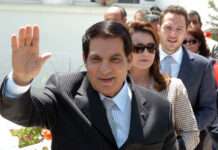“Alchourouk” published an article entitled “Popular tension and a push towards strife… Beware of confronting the war of “political tribes”.
According to the same source, Tunisia is experiencing a period of very severe tension. After the protest movements became more frequent and the Tunisian street became a space for mobilization and conflict, the pattern began to gradually escalate until the situation became liable to explode at any moment, whether by an internal or external actor.
From a political perspective, “So we don’t repeat the mistakes of the past decade” is an editorial published by “le Maghreb” which indicated that “it seems that we do not learn much from our previous experiences. In the name of breaking with the “previous system,” we repeat the same mistakes and sometimes the same shapes and even the same people despite changing climates and contexts.The fatal mistake of the influential in the first decade of the Tunisian revolution, led by the Islamic Ennahda Movement, was their belief that the conditional popular mandate in the elections allows them to radically change the rules of coexistence (the Constituent Assembly elections as a model). 2011 a direct mandate to do so.Among the fatal mistakes of the previous decade, as well as the denial of the pledges and commitments made by some parties in the category of roofing the time period for drafting the constitution in the year (2011), as well as the commitment before their voters not to ally with the opponent (2014 and 2019).”
“Election offenses and crimes: When will the law be applied?” is an article published by “la Presse”
It explained that “The controversy around the overruns committed during the 2019 elections is still swelling. Two years later, some are questioning the integrity and credibility of this election. Suffice to say that these shortcomings were so numerous that the fate of these elections is still unknown. Voices even speak of the cancellation of certain electoral lists.”











